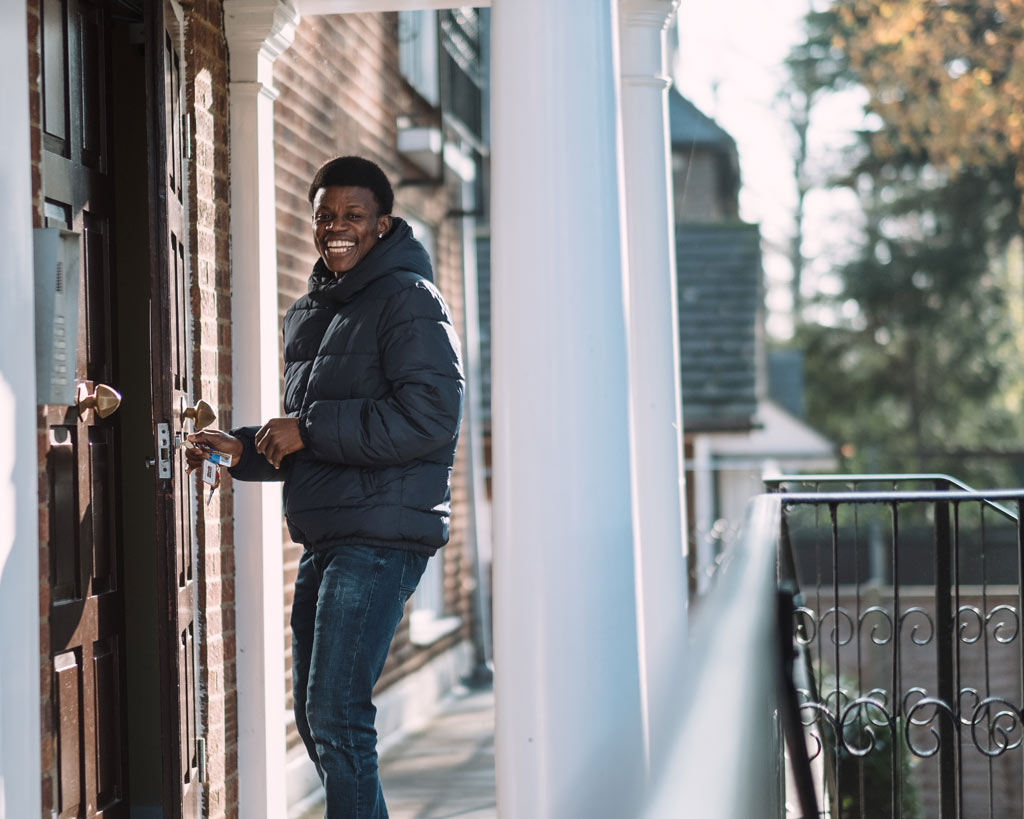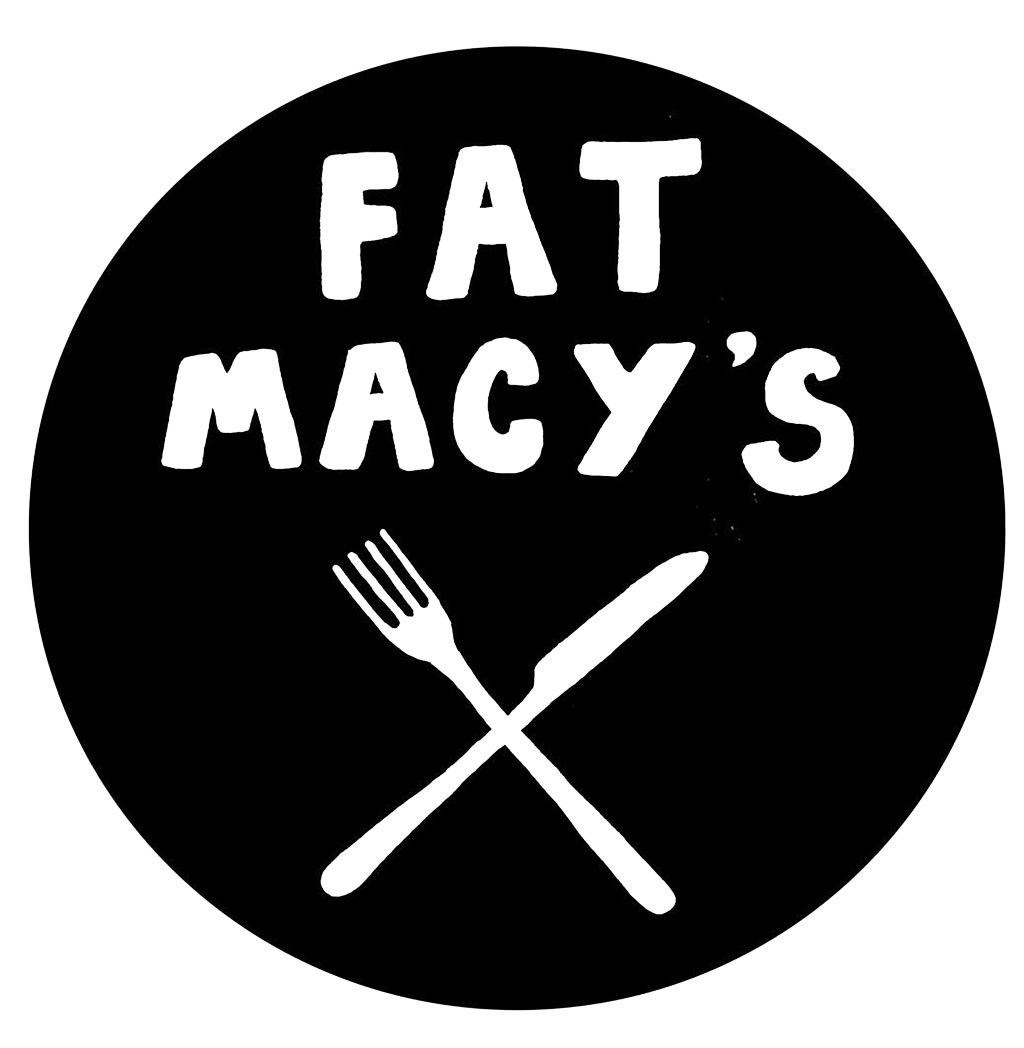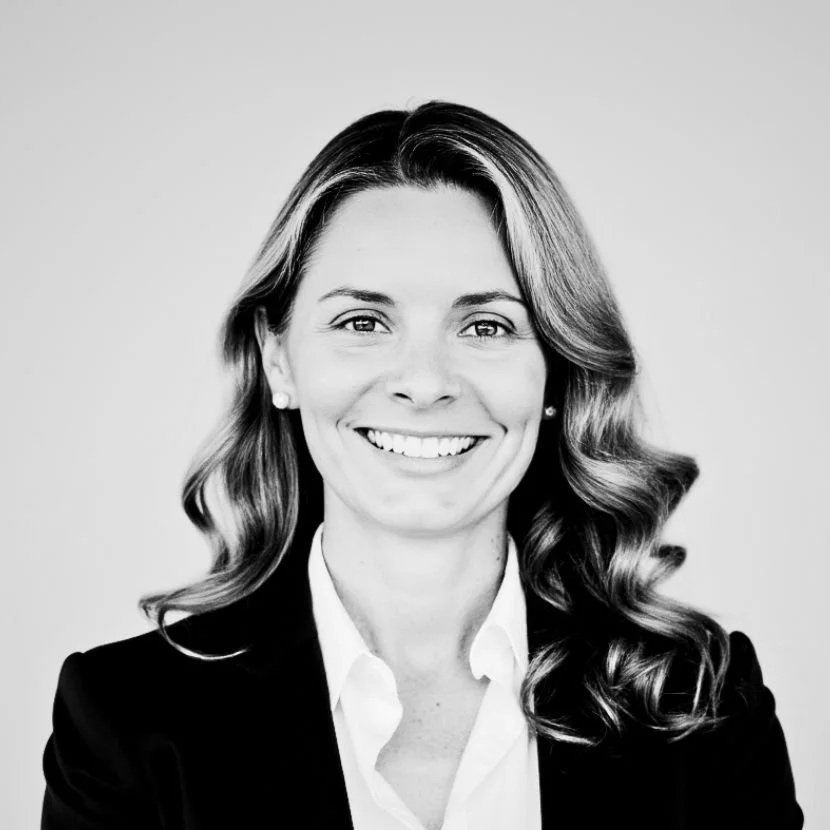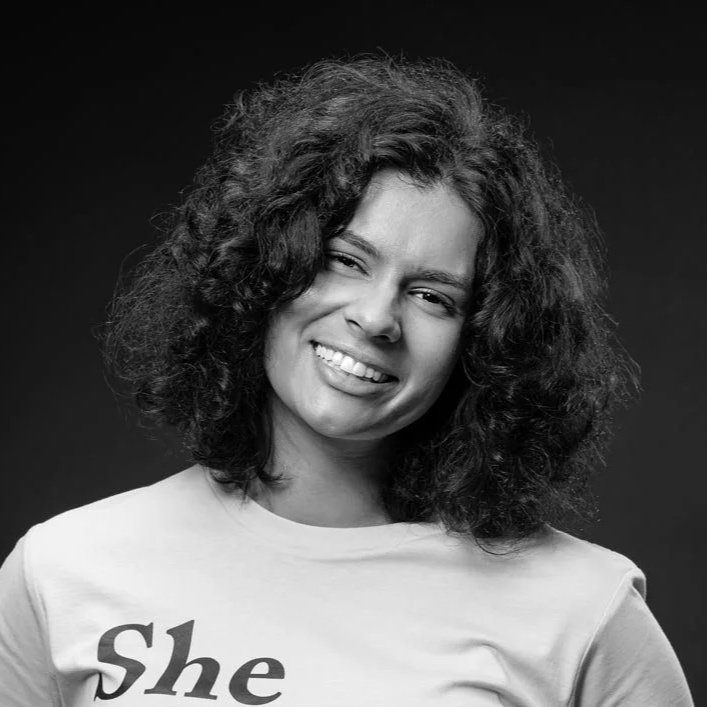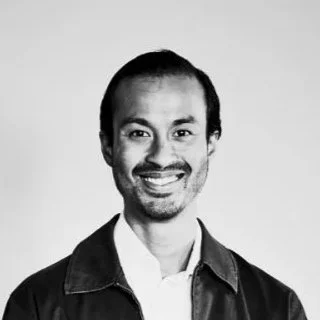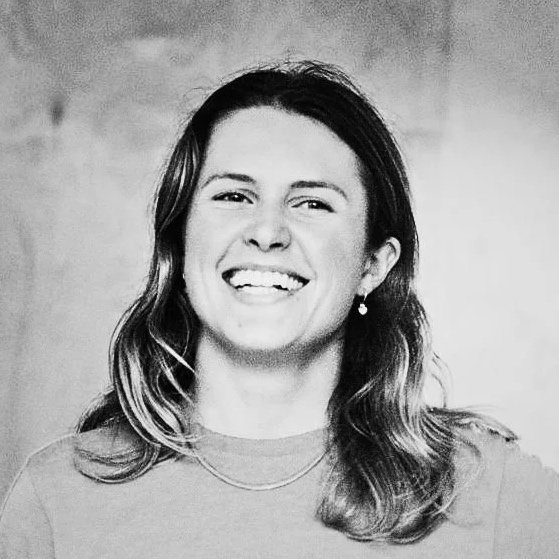Meg Doherty On Utilising Frontline Experience With Beneficiaries To Launch A Social Venture
Meg Doherty is the founder and director Fat Macy's, a roving restaurant aiming to end the cycle of homelessness for young Londoners.
She was named in NatWest's Wise 100 list of leading social enterprise women in the UK in both 2017 and 2018 and she was a 2015-16 Year Here Fellow, placed at the North London YMCA where she first developed Fat Macy's.
Meg shares her experience of the Year Here course, her placement in a homeless hostel and how this led her to launch Fat Macy’s, a catering company supporting young Londoners out of homelessness.
Highlights from the interview (listen to the podcast for full details)
[Gary Fawdrey] - Could you please share with us a bit about your background and what led you down the path of social enterprise?
[Meg Doherty] - My background is absolutely not connected to what I'm doing right now. I did a degree in French and English Literature. I got quite interested in Development as well, having lived abroad as a kid. And then I think I hit that moment of realisation - where am I best placed to add value or make an impact? And the classic - should it be lots of white people fly off to Africa to get involved, or really should I be in London where I know how the system works and I understand the city? We have as many problems here as I think anyone else does. Just because we're a rich nation, doesn't mean we don't have these big problems. So I was thinking, ‘how am I best placed to have an impact and what am I good at?’ I got really interested in the idea of social enterprise and it led me to doing the Year Here course. It's a one year postgraduate course in social innovation and their whole model is really interesting, which is that you have to live your social problem.
You could sit and read about an issue for months, but actually unless you meet those people and you hear their stories, you'll find it really difficult to know what actually is happening or what the lived experience of that issue is.
So I ended up working in a homeless shelter for five months. I went and worked in the North London YMCA, which is a 150 bed hostel in Crouch End. And I went in completely blind, I had no understanding of homelessness. Homeless shelters are quite chaotic places, there's loads going on and it just gave me so many insights into what was actually happening.
Brilliant. Could you tell us some more about the structure of the Year Here Course? [03:17]
Yeah, definitely. As I said, you do this five month placement frontline, so some people are in adult care homes, some people are in schools that have high levels of educational disadvantage, all sorts of projects. You do that for five months and the whole idea is to look for solutions and find small ways that you could improve the setting, whether it be for residents or staff or whatever it is, but it's really a time to get insights and to understand the problem. You then do a consulting phase, which is sort of the other end where you're dealing with policy makers or decision makers, and then the final stage is an incubator. So you build up all of the insights that you've had over the year or six months and then try to see if there's a solution that you could create and eventually launch. It led to Fat Macy's, it's led to Cracked It, and it's led to Birdsong. There are so many amazing social enterprises in London that have all been born from this small pool of people.
Was it a daunting decision to choose the social enterprise path and start the course? [04:15]
For me, I think it feels like a bit of a jump into the unknown when you make that decision to go and do it, but I think what makes it really impressive, is it gives you nine months to just take yourself out of the normal mindset of life and work and being busy and running around and just think - what solutions could we create or what are the positives that could come out of certain situations? So it was definitely a bit of a jump and you think, ‘oh god,’ it's such a hard thing to explain. No one knows what I'm doing and definitely down the pub, it's just such a nightmare to try and get into a few words. But for me, what made it really special is the network that it provides you with.
And so as a result of your time on the Year Here course and your placement at the YMCA hostel, you launched Fat Macy's. [05:03]
Had you asked me four years ago what I'd be doing now, it absolutely wouldn't have been running Fat Macy's, but I think the insights that I gained from being there, seeing people and speaking to people very much led me to set up Fat Macy's. So we are a catering company essentially. We're a social enterprise catering company and what we do is we run like any other catering company. We deliver lunches and dinners and we do supper club events. But I think what makes us different is that instead of going and finding sous chefs and kitchen porters, we go into hostels and we train people up with basic hospitality and catering skills and we use that as our vehicle to get people work experience, back in the workplace and on a pathway out of homelessness.
What I really learned from doing that placement at the YMCA was the main problem for people is housing deposits. So if you're living in a homeless shelter, the rents are extortionate and over a thousand pounds a month. That is because it pays for the whole service. So in the shelter, you've got staff, you've got overheads that you wouldn't have in house, so the costs are really, really high. But what that means for the individual is they have to stay on benefits in order to afford it. You have people up and down the country being forced to stay on benefits because it's the only way that they can afford their accommodation, and they don’t want it to be. And so I got really interested in looking at ways that you could create pathways out of homelessness by creating a route that doesn't affect benefits or people's rights. As a catering company we donate a percent of our profits to a charity and that charity gifts housing deposits out to our trainees once they've completed 200 hours of work experience placement with us.
Fantastic. And can I ask where the name Fat Macy's came from? [06:57]
I really struggled coming up with a name. I knew it had to be cool and I knew it had to be something that wasn't to charity sounding, you know, I didn't want it to sound like a charity project. So we had a couple of co-design sessions with the first group that we were piloting the model with.
I thought it was really important for me to have that input on the branding, the logo, the name and those sorts of things, because if they're going to be represented by this brand, it's really important that they can identify with it.
With the name - one of our trainees in one of the meetings just said, what about Fat Macy's? And we all sat there thinking, ‘I don't know what that means.’ And it felt a little bit like I can't ask because it's quite cool, but I don't understand it.
We generally work in YMCA hostels and macy is an anagram of YMCA. So for him it sort of said, it's a nod towards the fact that we're living in a YMCA, without it being YMCA branded. And they have this joke that if you live in one, you can get fat because you're catered and, you know it's difficult isn't it when you're not in control of what you're eating. So it was a bit of a joke, but it also sounds like a person, you know you can imagine a chef called Fat Macy. So yeah, that's where it came from. And then it stuck. And then we did a few events and then that was it.
So you did this amazing sounding course, you're here and then you've gone onto use what you learn in that experience to create Fat Macy's. I wondered if you could expand on that process in between and how you actually went about creating the organisation from scratch? [08:21]
Yeah, definitely.
I think it's one of those things that when you look back, it's quite surprising how quickly you can grow these social enterprises now given that everyone's really into the idea and the climate seems to be right, so that definitely helped.
But how it happened was I was on the Year Here program, and I started piloting a few of the dinners. We did one dinner which was entirely friends and family. I had the number of the pizza place around the corner just in case, you know, we maybe burned down the kitchen and it was horrendous. We just trialled whether it worked. Could you do an event that in theory makes money if you have these people here and could you save up money for the deposit at the same time with covering all your costs and all the rest. That was really great. We did it at the Canvas Cafe in London on Brick Lane. The lady who ran the cafe got in touch a few weeks later and said that was really great, would you consider taking on a month and do 10 events rather than one. And because I was on the Year Here course at the time, your whole mindset is to try things and experiment and see what happens. And so we just thought, ‘why not?’ And I think if someone had said that to me now, you'd think, god, no, I couldn't possibly do it, so much work, but we just thought why not? And we did eight events I think. And then it just spiralled from there.
For me, the first year was almost entirely delivery. It was try as many different types of events as we could and see what works, see what didn't.
A lot of applying for funding as well. There's some incredible support networks out there for funding and people who are really willing to just help you along your way. And that was the first year. And then I think by the end of that year we just thought, ‘oh god, we've got to actually think about the sustainability of this model. We've tested many different things, but we don't have a plan or a vision. We're just doing all these events.’ So the second year was a lot of thinking and stopping and getting advice from people, legal and financial, and really trying to figure out from all the lessons that we learned - what is the future of Fat Macy's if there's going to be a viable business. That was great because I think it was much needed and I am a complete doer rather than a thinker, so I'll just do something, see if it works and if it works then I'll think about how to make it happen, and so I really needed those two separate points.
Then we're now in our third year and I think this has been just really exciting because it's starting to feel a bit more real. We've got an amazing team of chefs now who work on the project and design the menus and really provide that food expertise, which was absolutely lacking before as I do not have a food background. We’re planning for the future on where it could get to and it now feels quite achievable. But yeah, it was. It's quite a slow process.
I think at times it's quite a lonely journey, but there was so much support out there, which I think without all of these different people who jumped in and gave us advice, we wouldn't have got here.
Fantastic. Could you touch on what the social enterprise looks like today?
Yeah, definitely. So we have a business and a charity. The business operates as a normal catering business, so we have a team of chefs who run it and the trainees come in as work experience placements. We run a catering company so we provide breakfast, lunch and dinner for big offices or events or organisations and then we do supper clubs, which are more personal and those are the ones that we run ourselves. So we hire a venue, normally a cafe after hours and our trainees design the menu with our chef. And we'll run a supper club, which is essentially a fancy name for dinner, but there's a set menu and everyone eats at the same time. And our trainees share a bit about themselves and their journey with Fat Macy's or where they're trying to get to. And those are really lovely because they feel quite personal and are maximum 30 people. We’re actually doing the next one's in February for Valentines and Galentine's and whatever the next day is, (I can never remember), which are at the Good and Proper Tea Cafe on Leather Lane, which is a lovely venue.
So that's that side of the business. And then we have a charity. So the charity is what does the training. It goes into homeless hostels and provides basic catering and hospitality training with new residents. And the idea is that acts as our recruitment pool. So when we find trainees that are really into it and they really like the idea and they're really keen, they then come and do the 200 hours of work experience at the business and the two entities work together to run the social enterprise.
Fantastic. And what is the piece of social impact that you're most proud of with Fat Macy’s?
So it's been a bit of a slow journey. We work very intensively with the people that we work with. We're not working with hundreds of people, but we work with maybe 10 at a time, but we work with them really closely. One man in particular Manuel, is someone I started working with back in 2017, and he was someone that just wasn't really interested in cooking, but he knew he needed to get out of the hostel. He's just really charming and really lovely and we brought him along to a few events. He is much more into the front of house side of things. So charming the guests and doing that side of the business. And in the year and a half that we worked with him, he went from someone who knew very little about hospitality to just running the show. So he runs the supper clubs now. And in September he reached his 200 hour milestone with us. So he had volunteered with us over 200 hours of events and then became eligible for housing deposit, so he then in October moved into a one bed flat in Enfield and I think for us it was just such an exciting moment because everything becomes real. Everything that you'd planned and hoped for suddenly happens and you suddenly see a man with a pair of keys for his own flat, having been homeless for about six years, in and out of night shelters and temporary accommodation units. And you just think, ‘wow.’ Like it's actually doable. I think a really proud moment for all of us to see that happen.
Incredible. Thank you for sharing that. So what are your plans for the future of Fat Macy's?
So back in the end of 2017, we decided that we needed to scale and we needed a permanent venue and a permanent kitchen more than anything in order to really achieve the impact that we wanted to. As you can imagine, running catering events with no kitchen is problematic at the best of time and so we decided to crowd fund for about 50,000 pounds, which was really hard work, but you know, such a success that we managed to put it together. It has then taken us a full year to get a premises located. I think we've gone through about four or five different venues. I'm hoping next week we'll find out if we get the planning permission for space in Peckham. What makes this space very exciting, is it both has space for our kitchen and a restaurant space, but it also has a four bed flat above, and so what we're looking at doing is seeing if there are ways that we can challenge the current structure of temporary accommodation and homeless hostels, and instead of it being this space where the average stay is two years, some people stay in hostels for six, seven years. Instead of it being that, could it be that we provide people with a flat? We provide them with full time work opportunities below and you could get a housing deposit and be back on your feet in six months.
So that's something really exciting that I think will be us scaling in every direction at the same time, which is terrifying, but it's that option for us to really explore housing solutions, while really scaling the food side of the business, because we'll have a full time kitchen. We'll also have our own restaurant space that we can use and an event space that other social enterprises can come and use. So we're really hoping it not only becomes our base as a social enterprise caterer, but a base for so many other really inspiring projects in London to use and grow.
And if everything goes to plan, when do you hope to get the premises up and running yet?
We're hoping the late spring, early summer, but that might be very optimistic seeing as it's currently a launderette. So, who knows that this year, if it happens this year, I'll be happy.
Fantastic. For our listeners who might be considering launching their own social venture, what would be your top piece of advice? [16:59]
I think the best thing I learned is the ‘fake it till you make it’ mindset in the early days.
I think a mixture of that, and knowing that no one really knows what's going on is a really good starting point, because I think if you’d said to me, four years ago, you're going to be running a social enterprise catering company working with homeless people when I knew nothing about catering and nothing about homelessness, I would've thought, ‘yeah, unlikely.’ But I think what's so interesting is that you can have an idea and you can design a logo and make a twitter account and then suddenly you're semi official. Like that's now how the world seemingly works with some of these things, and I think I'm by no means an expert when it comes to anything that we do, but you can very quickly add yourself into into a space and contribute. For me, it's thinking of it in small blocks. If when I started I thought about where we are now, you would just think, ‘there's no way, I can't do that.’ Whereas if you think, ‘all I want to do is have a dinner with loads of my friends and family and cook it with the help of some people that I've met who live in this homeless shelter’ - that's really achievable and you can just slowly build up that way.
I think this ‘fake it till you make it’ idea is, you just start a thing and eventually enough people will get involved. Instead of thinking I need to start a business, that for me it would have been terrifying. Whereas if you sort of think, ‘what is the smallest thing you can do to test that idea and just go for it?’ I mean, if it all goes wrong, you're not a failed business. You just had an unsuccessful dinner party.
Are there any misconceptions about the social enterprise school, wider social impact sector that you would like to see change?
I think this has been an interesting one for us because we have a duel model. This is going to get very technical, very quickly, so I apologise. I want Fat Macy's to be a competitive catering business that is a business because I want us to be able to compete with all the other caterers in London and become the choice that is as good in terms of value and quality of food as anyone else, but it just so happens that we have a social purpose, and we also have a charity, and that does the charitable work and the business donates profit to the charity.
I want the business to be a business and the charity to be the charity and that for a lot of people is really problematic. I think it's something that's changing, but governance and legal structures of social enterprises is something that is a real talking point and as soon as you add that, you're a social business.
People feel that it's up for debate how you run and why. I'm not from any minute saying that there shouldn't be any regulation and anything like that, but I do think it's a really interesting area that increasingly businesses are becoming more social and yet they're still doesn't quite seem to be the framework that allows you to be a competitive for profit business and still have social impact without you getting involved in all these crazy little legal structures about profit locks, and all this stuff which takes ages. Not that it necessarily needs to change, but I think it will with time. People will come more open to different models of governance and legal structures for businesses that are social in that essence.
So I'm sure over the last few years of running Fat Macy's, you've probably had a lot of exposure to other social impact work that's going on here in London. Are there any projects or initiatives that you'd like to share that you think are creating really exciting social impact? [20:48]
Definitely. I think it's a really inspiring time to be part of this whole network and it still really tiny network in London. If you go to any social impact events, you'll notice all the same people, so there's definitely room for it to grow, which is really exciting. Some of my favourites, a lot of them are Year Here ventures because they're good friends of mine as well, so my friend Josh Babirende runs Cracked It, which is an iPhone repair service staffed by people who are at risk of offending or joining gangs. They are making waves in every direction. There's a great organisation called Settle and we partner with them quite a lot. They provide move-on support for young people who are making a transition into housing and that's a really big point as well. It's a real big sticking point for people and it’s often where people lose their way when you first move into a house of your own and they provide the six week course of really intensive support, when they go around to their house and show them how to use things, how to pay their bills and things like that. But when it's completely tangible, you know, it's real for that person. It's not a hypothetical situation. There’s a group called Birdsong as well, which is a feminist fashion brand. So they work with women's groups and women makers and upskill them to design really beautiful clothes that they then sell to support these women's groups to be self sustaining. There's so many; there's loads in food as well. So I think what's really exciting now is that it feels like you can buy social almost anywhere. So you could get your phone repaired and it has social impact as well as being as good a phone repair as it would be if we went to a little shop, or your clothes or your food or whatever.
There's a real push now to buying social wherever you can.
Fantastic. To finish up, are there any books or other resources related to anything we've chatted about today that you think our listeners should checkout? [22:46]
Very good question. Some of the Nesta resources are pretty good. So there's a lot about sort of starting businesses and a DIY toolkit, Development Impact and You. I think it sounds stupid to say Google it, but there are just so many amazing resources online to really help you develop your ideas and think about things. And then I think again, very London centric, but there's a lot of organisations based in London but they do work nationally, like Unltd, the School for Social Entrepreneurs, the Paul Hamlyn Foundation, there's so many places that can really support you in your very early stage of I just had this idea and I have no idea if it's going to work, but I want to explore it.



